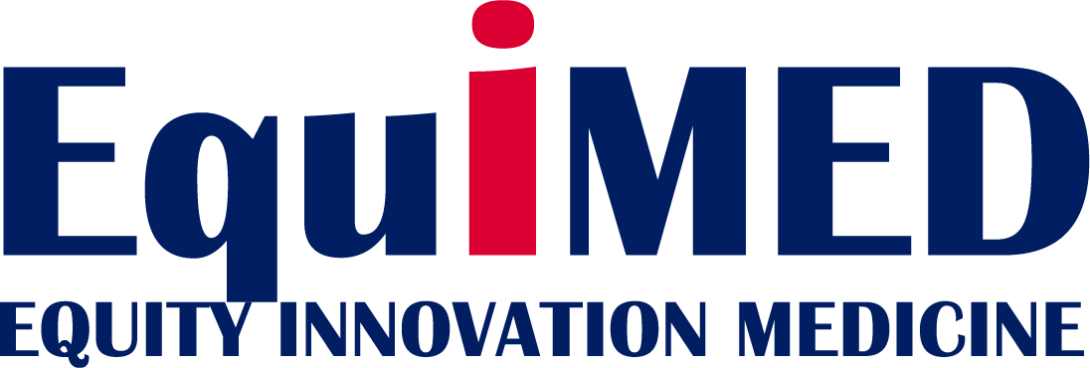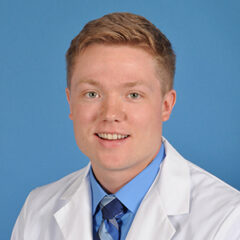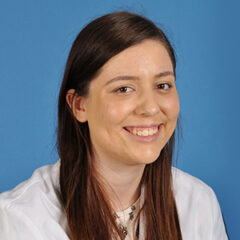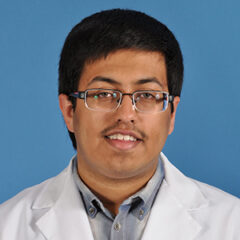Equity Innovation Medicine (EquIMED) Program
intro Heading link

EquIMED is a longitudinal, four-year elective offering medical students the opportunity to experience health care and health care delivery models in low resource settings.
Students accepted into the program gain a deep understanding of the barriers that exist in rural, urban, and global health care settings. Core to the elective involves developing innovative tools to solve fundamental problems. Students will draw from clinical experiences to solve real-world problems.
Participants also will:
- Gain competency in interdisciplinary problem-solving
- Learn about engineering design and process improvement
- Experience austere medicine first-hand at one of many international sites
- Understand the process of change management
- Build relationships with their cohort
Brett Austin Heading link

Choosing to apply to [EquIMED] was definitely the best choice I made during med school. I learned so much more than I could have hoped for: cultural humility, keeping a humble and open mind and approaching situations without preconceived notions. You can’t come up with a solution to an ill-defined problem, and there is always more to learn and practice. Finally, my participation in [EquIMED] and the impact on residency cannot be overstated as every application and interview asked about the program.
| Class of 2022, Internal Medicine Resident, The Mayo Clinic
Curricular Overview Heading link
EquIMED spans all four years of medical school. Learning activities include lunch and learn seminars, medical colloquia, online learning, global rural health simulation training, a two-week immersive rotation at a global rural site, local rural site, or local urban site, and a capstone project.
- Year 1 – Year 2
- Seminars, online lectures and EquIMED colloquia (32 hours)
- Year 2 – Year 4
- Global Rural Health Simulation (80 hours)
- Austere Innovation (80 hours)
- Year 3 – Year 4
- EquIMED Capstone Project (40 hours)
Application Information Heading link
Additional Information:
- Accepts 8 students per year
- About 1/3 of the program is independent, self-directed
- Students may concurrently enroll in EquIMED and UICOMP’s Rural Student Physician Program
- This is a longitudinal elective. Credit is awarded in M4 year upon completion of requirements
Amber Bennington Heading link

I didn’t have a single interview for residency that didn’t touch on [EquIMED]. They [the interviewers] were super excited to talk about the projects and started asking what would this [project] look like if we used it in our community? I even had people ask if they could partner on the project.
| Class of 2022, Pediatrics Resident, University of Arizona College of Medicine
Frequently Asked Questions Heading link
-
What is the EquIMED program?
Equity Innovation Medicine (EquIMED) — formerly Innovation in Rural Global Medicine (IRGmed) — is a four-year elective available to medical students at the University of Illinois College of Medicine Peoria. It teaches students the tools and techniques of innovation required to create sustainable change, improve access to health care, and reduce health disparities in underserved communities both globally and in the US. This unique program incorporates the expertise of OSF Innovation located in the Jump Trading Simulation and Education Center to help students create and develop solutions to real-world health challenges.
The EquIMED program strives to continually grow our partners, the longest standing of which is Mbarara University of Science and Technology (https://www.must.ac.ug/), with prototypes being developed with academic partner innovation programs, such as Bradley University.
First and Second Years
Through the established partnership, EquIMED students not only experience health care delivery and public health from expert practitioners, they also learn from experts in the fields of engineering, medical visualization, human-centered design, advanced analytics, and performance improvement through multiple interactive small group seminars and simulations.
Third Year
Students complete a 2-week course that includes a variety of classroom and simulation sessions to provide students with an understanding of clinical care practice in austere settings, cultural humility, and the innovation design process. Students then complete a 2-week immersive experience in a resource-limited environment where they work with key stakeholders to develop innovative prototype solutions to address local health challenges. Some prototypes will then be further developed in partnership with multidisciplinary teams at Bradley University.
Fourth Year
Students complete a capstone project that includes a final paper, poster, and presentation to demonstrate what they’ve learned about how innovation can be used to reduce health disparities and improve care in the most vulnerable populations in the U.S. and globally, including many resource-limited communities.
-
Where will the students be during their two-week immersive experiences and what will they do there?
Students have the option to be placed at one of the global rural, U.S. rural, or U.S. urban partner sites. In AY 2019-2023, immersive experiences were completed in Mbarara, Uganda at our partner site, Mbarara University of Science and Technology (https://www.must.ac.ug/), at the Consortium for Affordable Medical Technology (CAMTech) (https://camtechuganda.must.ac.ug/), Danville, IL and Streator, IL. Global and U.S. sites may vary from year to year.
Students are assigned problem statements specific to their placement site, and onsite, they will work to present research summaries, learn from local subject matter experts, identify gaps in care delivery, observe existing processes, and finally develop prototype solution pitches.
-
What kinds of health challenges are the students working on?
The previous health challenge topics included: improving access to prenatal care; early screening and diagnosis of depression; empowerment and education of “patient attendants” as part of a clinical team; access to sustainable mobility devices; alternative casting materials, adherence to diabetic treatment, food insecurity and utilization of a mobile clinic to reach vulnerable populations.
EquIMED leadership will work collaboratively with partner sites to identify specific, pertinent, and current health challenge topics that exist in their communities. Students will be assigned topics in the fall semester (M3 year) prior to departure.
-
What makes this course relevant nationally and globally?
Low-resource communities in the U.S. and around the world face significant disparities in health outcomes. These are complex challenges that will require creative and innovative solutions not only to reduce cost but also to improve access to quality care and improve health outcomes in our most vulnerable populations. By collaborating with U.S. and global partners, information and solutions can be shared across borders to improve the lives of people in the U.S. and around the world.
-
When you talk about innovative solutions, what do you mean?
Innovative solutions could include a digital tool or technology, a better way of identifying at-risk individuals or communities, or improving education and communication through the use of technology. The key components of this innovative approach are developing solutions that are sustainable, highly scalable, applicable in multiple low-resource settings, and improve health equity among vulnerable populations.
Contact Us Heading link
Erica Litzsey
Phone:
Email:
John Vozenilek
Email:
testimonials Heading link

I love the way the [EquIMED] program is set up. In the first years of medical school, we learn about challenges people face, you learn about what health inequity actually is, the need to address social determinants of health and what it means to be an innovator on a broad level. In our third year, we got to be innovators and go to into community and practice what we learned about. During our fourth year, we got to be leaders, advisors and clinical experts with our projects.
| Class of 2022, Emergency Medicine Resident, UICOMP